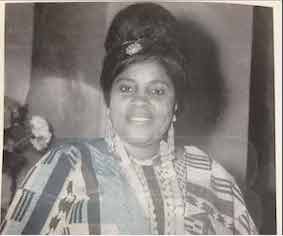| |||||
| Decades: | |||||
|---|---|---|---|---|---|
| See also: | |||||
Events in the year 1963 in Nigeria .
| |||||
| Decades: | |||||
|---|---|---|---|---|---|
| See also: | |||||
Events in the year 1963 in Nigeria .

Hakeem Abdul Olajuwon, nicknamed "the Dream", is a Nigerian-American former professional basketball player. From 1984 to 2002, he played center in the National Basketball Association (NBA) for the Houston Rockets and, in his last season, the Toronto Raptors. He led the Rockets to back-to-back NBA championships in 1994 and 1995. Olajuwon was inducted into the Naismith Memorial Basketball Hall of Fame in 2008 and the FIBA Hall of Fame in 2016. He is widely considered to be one of the greatest centers, as well as one of the greatest basketball players of all time.

Nnamdi Benjamin Azikiwe, PC, usually referred to as "Zik", was a Nigerian statesman and political leader who served as the first President of Nigeria from 1963 to 1966. Considered a driving force behind the nation's independence, he came to be known as the "father of Nigerian Nationalism".
The National Basketball Association Most Valuable Player Award (MVP) is an annual National Basketball Association (NBA) award given since the 1955–56 season to the best performing player of the regular season. Starting with the 2022–23 season, winners receive the Michael Jordan Trophy, named for the five-time MVP often considered the best player in NBA history.
The Bill Russell NBA Finals Most Valuable Player Award is an annual National Basketball Association (NBA) award given since the 1969 NBA Finals. The award is decided by a panel of eleven media members, who cast votes after the conclusion of the Finals. The person with the highest number of votes wins the award. The award was originally a black trophy with a gold basketball-shaped sphere at the top, similar to the Larry O'Brien Trophy, until a new trophy was introduced in 2005 to commemorate Bill Russell.
The National Council of Nigeria and the Cameroons (NCNC) later changed to the National Convention of Nigerian Citizens, was a Nigerian nationalist political party from 1944 to 1966, during the period leading up to independence and immediately following independence.

Prince Abyssinia Akweke Nwafor Orizu was a Nigerian of Igbo origin who served as President of the Nigerian Senate from 1963 to 15 January 1966, during the Nigerian First Republic. Orizu was also Acting President of Nigeria from late 1965 until the military coup of January 1966. He was a member of the Nnewi Royal family. His nephew Igwe Kenneth Onyeneke Orizu III is the current Igwe (King) of Nnewi Kingdom. Nwafor Orizu College of Education in Nsugbe, Anambra State, is named after him.

Nnamdi Azikiwe University, Awka, also called UNIZIK or NAU in short is a federal university in Nigeria. It consists of two campuses in Anambra State. Its main campus is in Awka, while its other campus is in Nnewi. There are also other campuses of Nnamdi Azikiwe University, Awka. These include Agulu in Aniocha local government area and Ifite-Ogwuari in Ayamelum local government area in Anambra State. This makes Nnamdi Azikiwe University to operate in the three Senatorial Districts in Anambra State, Nigeria having Awka campus, in Anambra Central Senatorial District, Nnewi in Anambra North Senatorial District and Ifite-Ogwuari in Anambra North Senatorial District, respectively. These campuses have libraries and information services that serve the students, academic and non-academic staff. It is one of the federal universities which are overseen and accredited by the National Universities Commission. The university is named after late Dr. Nnamdi Azikiwe. The academic staff of the university belong to Academic Staff Union of Universities (ASUU). The staff union is known to grant scholarship to indigent students just like other philanthropists. It has a total population of about 34,000 students.

The Supreme Court of Nigeria (SCN) is the highest court in Nigeria, and is located in the Central District, Abuja, in what is known as the Three Arms Zone, so called due to the proximity of the offices of the Presidential Complex, the National Assembly, and the Supreme Court.

The First Republic was the republican government of Nigeria between 1963 and 1966 governed by the first republican constitution. The country's government was based on a federal form of the Westminster system. The period between 1 October 1960, when the country gained its independence and 15 January 1966, when the first military coup d’état took place, is also generally referred to as the First Republic. The first Republic of Nigeria was ruled by different leaders representing their regions as premiers in a federation during this period. Leaders include Ahmadu Bello Northern Nigeria 1959–1966, Obafemi Awolowo Western Nigeria 1959–1960, Samuel Akintola Western Nigeria 1960–1966, Michael Okpara Eastern Nigeria 1960–1966, and Dennis Osadebay Mid-Western Nigeria 1964–1966.

The Constitution of Nigeria is the written supreme law of the Federal Republic of Nigeria. Nigeria has had many constitutions. Its current form was enacted on 29 May 1999 and inaugurated the Fourth Nigerian Republic.
Eyo Italisten was a Nigerian educationist and politician from Creek Town, in present-day Cross River State, who was the leader of the Eastern Government of Nigeria in 1951 and the first Professor Nigeria ever had. He was one of the earliest Nigerian students who studied in the United States instead of the frequent route of studying in the United Kingdom. He was a deputy national president of the National Council of Nigeria and the Cameroons (NCNC) in the late 1940s and early 1950s.
Zungeru is a town in Niger State, Nigeria. It was the capital of the British protectorate of Northern Nigeria from 1902 until 1916. It is the site of the Niger State Polytechnic and is located on the Kaduna River.
Abdul Karim Disu was a Nigerian journalist, and the first Nigerian to earn a post-graduate degree in journalism when he attended Columbia University in 1944. Disu originated from Isale-Eko, Lagos and was a close friend of Nnamdi Azikiwe, the first President of Nigeria.

The Federation of Nigeria was a predecessor to modern-day Nigeria from 1954 to 1963. It was a British protectorate until its independence on 1 October 1960.
Independence Day is an official national holiday in Nigeria, celebrated on the 1st of October. It marks Nigeria's proclamation of independence from British rule on 1 October 1960.
Events in the year 1960 in Nigeria.

Flora Ogbenyeanu Ogoegbunam Azikiwe was the first wife of Nnamdi Azikiwe, the first President of Nigeria. She served as the first First Lady of Nigeria from 1 October 1963 to 16 January 1966.
Joseph Eberendu Ahaneku is an academic and Consultant Chemical Pathologist of Nnamdi Azikiwe University, Awka, Nigeria. Ahaneku is the Former Vice Chancellor of Nnamdi Azikiwe University, Awka. He hails from Nnarambia Ahiara Ahiazu Mbaise, Imo State, Nigeria.